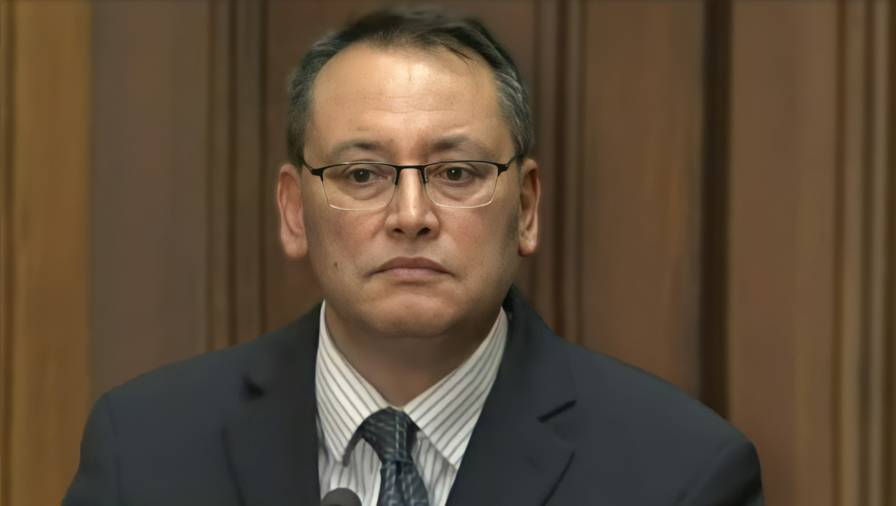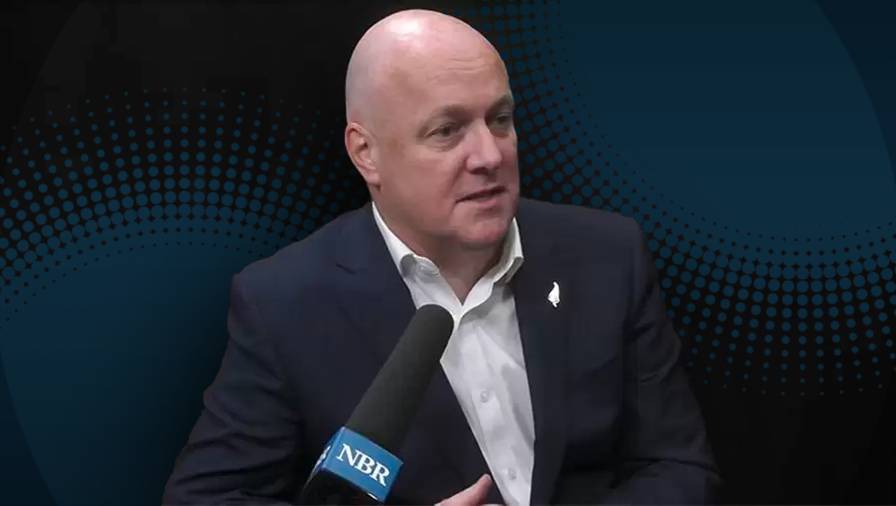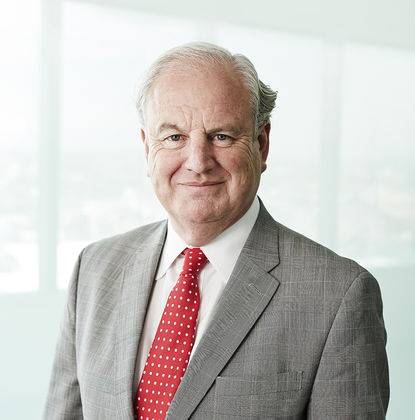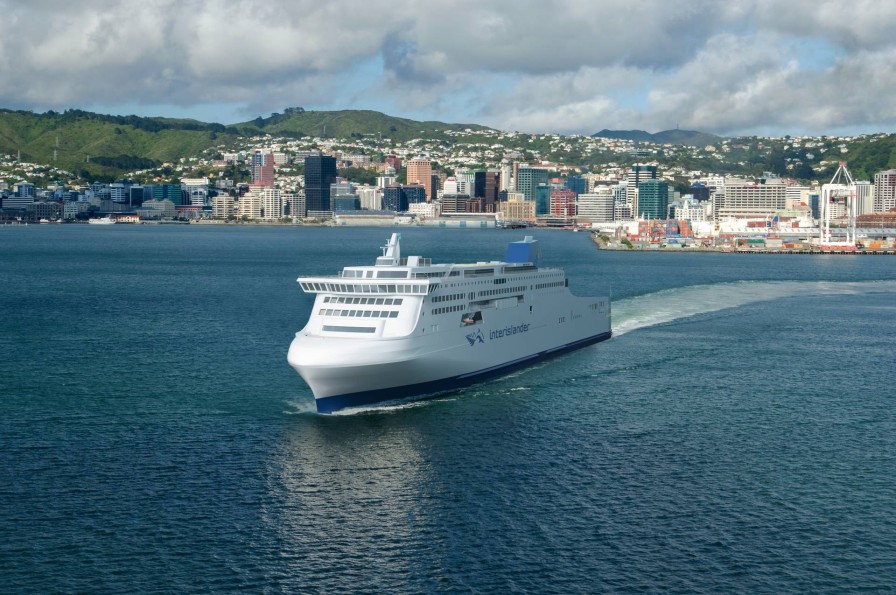

Saying sorry, fixing ferries, power problems, disagreement
ANALYSIS: Christopher Luxon says the Cook Strait crossing is a ‘critical piece of infrastructure’.
WATCH: NBR political editor Brent Edwards speaks with Grant Walker.


ANALYSIS: Christopher Luxon says the Cook Strait crossing is a ‘critical piece of infrastructure’.
WATCH: NBR political editor Brent Edwards speaks with Grant Walker.
Prime Minister Christopher Luxon was clearly a little disappointed with the news media reaction to his announcement that $604 million was being allocated to Pharmac over four years to buy more cancer drugs and other medicines.
For Luxon, it was time to celebrate but, instead, journalists wanted to know whether he was going to apologise for the way the Government had handled the matter.
National had promised in the election campaign to fund 13 new cancer drugs, with cancer sufferers and advocates expecting the policy to be delivered in last month’s Budget. When it wasn’t, there was widespread disappointment and condemnation of the Government’s failure to deliver on the campaign promise.
That public pressure appeared to galvanise the Government into action, so just three or so weeks later, it announced the new spending. To afford it for this year, it will be taking about $100m or so out of next year’s Budget as a pre-commitment.
Labour leader Chris Hipkins commented that there were many people who deserve an apology from Luxon. But Luxon did apologise – albeit reluctantly – during the news conference.
By contrast, Health Minister Dr Shane Reti said the Government communication could have been better and “I apologise for the uncertainty this has caused patients and their families”.

Minister of Health Dr Shane Reti.
“Prime Minister, are you also sorry?” a reporter asked.
“Look, I mean, as I said at the time, I think we could’ve communicated it better,” Luxon replied.
But no apology.
After several more questions on the matter, one reporter said: “Just say sorry.”
“I’d just say to you we have apologised. We know that caused disruption ...”
“You personally?” interjected a reporter.
“It caused anxiety for people, and I do as well,” Luxon said.
But the point he wanted to make was that the announcement was a “transformational programme” and that it was delivering 26 new cancer treatments and 32 other medicines, which would benefit 175,000 people in the first year.
“We’ve acknowledged upfront that we could have communicated it better. Yes, we apologise for that,” Luxon said.
While the Prime Minister might have got a hard time over saying sorry, he was right that it was a quite transformative investment in new drugs – something that Labour and the Greens acknowledged even as they criticised the Government for the way it handled the process.

Prime Minister Christopher Luxon.
Another apology might be needed for the Aratere grounding last week, which raised questions about the Government’s plan for the ferry service after it put a stop late last year to KiwiRail’s plan to replace them with two larger vessels and build new onshore infrastructure.
Just how long the Aratere will be out of action is not clear, but it puts renewed pressure on the Cook Strait service, which is a crucial transport link for freight and people between the North and South islands.
KiwiRail board chair David McLean had already resigned before the grounding and will leave the board at the end of July, instead of the end of October, which had been the scheduled end of his current term.
“I leave with confidence in a team and an organisation that has dealt with many major challenges and is now in a much stronger and more stable position,” McLean said.
But there is still plenty of uncertainty about the organisation, particularly around what will happen with the ferries.
The Government has announced it is looking to refresh the board, but Grant Walker wonders what difference a new board can make.
When McLean – who retired as chief executive of Westpac in May 2021 – was announced as the new chair of KiwiRail in December that year, it came after the sudden resignation of chief executive Greg Miller on November 24 in the wake of criticism of his leadership style.
Then Finance Minister Grant Robertson and SOE Minister David Clark said they were confident McLean would provide additional governance oversight of the rail company.
Presumably coalition ministers will have the same confidence in whoever they appoint to the role.

Outgoing chair of KiwiRail David McLean.
Meanwhile, questions remain about just how much will eventually be spent on new ferries despite the Government quashing KiwiRail’s plan, which Luxon said had blown out from an original budget of $750m to $3.2 billion. But the Government is committed to new ships for the Cook Strait.
“We think it’s a critical piece of infrastructure,” he said.
Luxon said the ministerial advisory group on the ferries had reported back last week but ministers had not yet had time to fully consider the report.
“They got a bit distracted, as you would’ve seen this weekend, on another ferry problem,” he said.
Walker asks whether, in the end, cancelling the original deal will cost the Government more in the long run.
Luxon was asked a similar question.
“Do you think you’ll come to regret killing off the iReX project?”
“No, we’ve got no regrets about that whatsoever,” he replied.

How much will it cost for a new ferry similar to this?
The Government is also dealing with the fallout from the collapse last week of a power pylon that cut power to most of Northland.
It appears clear now that maintenance workers removed most of the nuts and bolts holding the pylon up. Not surprisingly, it then toppled over. But a full investigation is being held before final judgements are made and any lessons learned applied to future maintenance work.
While Transpower, which is responsible for the national grid, is investigating, Energy Minister Simeon Brown has also asked the Electricity Authority to review it and he is promising to ensure it never happens again.
This week, the Government announced a range of measures to meet promises it made during the election campaign about cracking down on crime. Boot camps for young offenders are about to get under way, and those who commit serious crimes will face tougher sentences, with a move also to cap the sentence discounts judges can apply at 40%.
Finally, the Cabinet initiated the ‘agree to disagree’ clause in the coalition agreement for the first time, when New Zealand First objected to the way the Royal Commission of Inquiry into the response to Covid-19 was being extended. Under the announcement, the current inquiry will end in November before phase two of the expanded inquiry begins.
New Zealand First leader Winston Peters wants the current inquiry to wind up today and he is particularly opposed to allowing Professor Tony Blakely to continue as chair until November.
Is this a sign that all is not well within the coalition?
Probably not. The agree to disagree clause is a safety valve and, in this case, it allows Peters to perform for New Zealand First supporters without putting the coalition at risk.
Brent Edwards is NBR’s political editor.